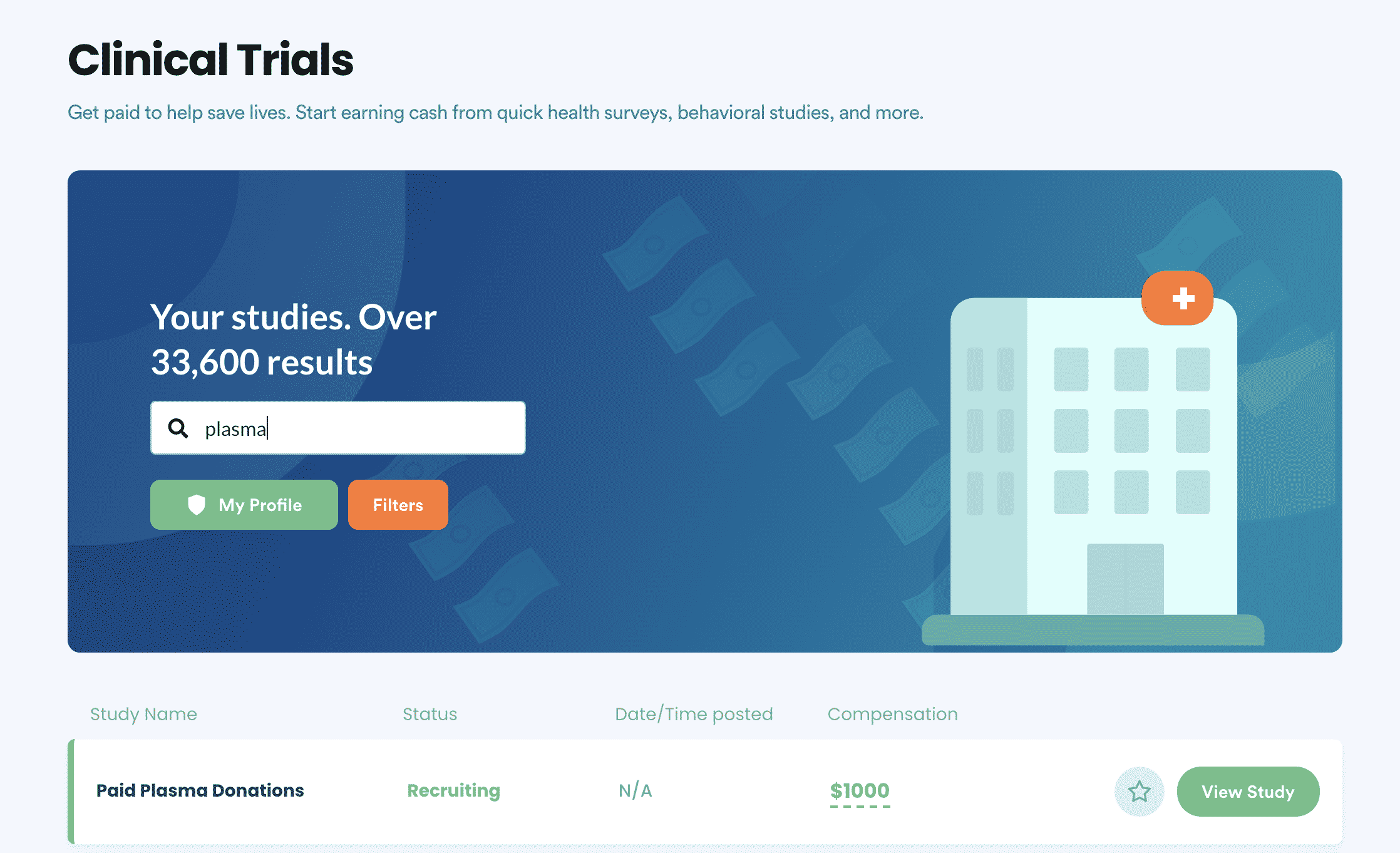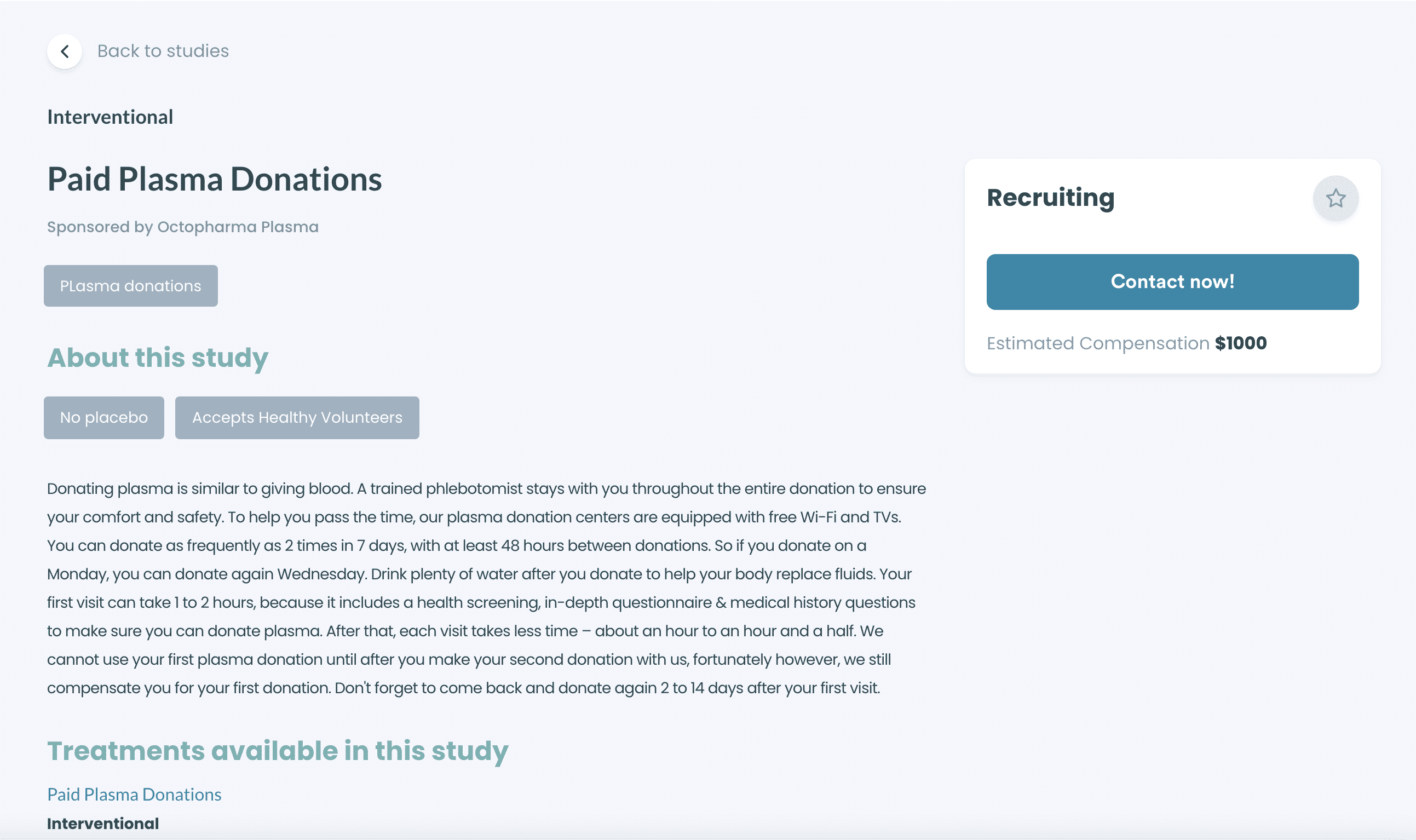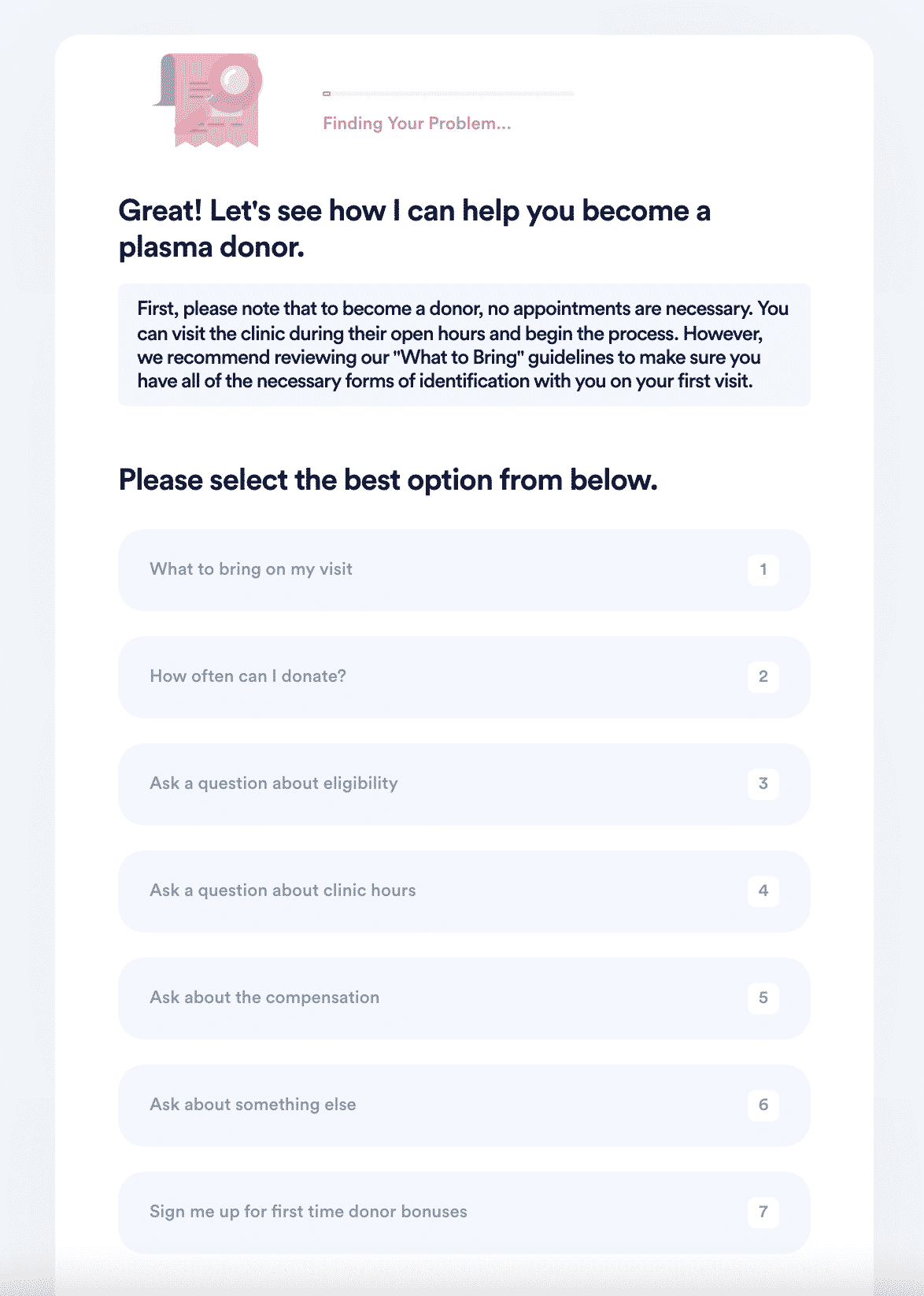How Long After Surgery Can You Donate Plasma?
Plasma is in charge of keeping the body's blood pressure, blood volume, and pH levels in check. Our bodies wouldn't get many of the proteins it needs to keep blood clotting and immune system reactions going if we didn't have plasma.
Unlike typical blood donations, are used for more specific purposes, necessitating choosing the optimal donation location. This may significantly hinder finding the nearest and best plasma collection center. Fortunately, you do not have to worry about that anymore as DoNotPay will find the closest blood plasma collection center.
How Long After Surgery Can You Donate Plasma?
once their surgical incisions have healed completely. Before donation, the underlying ailment that necessitated the surgery must be evaluated thoroughly to ensure donating plasma does not put your health at risk.
Plasma Donation Centers in the US
There are many sites across the US where you can donate plasma. Here are just a few of those sites:
| CSL Plasma | 5740 W Little York Rd, Houston, TX 77091 | (832) 327-2638 |
| BioLife Plasma Services | 5951 S 180th St Ste 101, Tukwila, WA 98188 | (206) 566-7852 |
| Octapharma Plasma | 1203 W Pratt St, Baltimore, MD 21223 | (443) 927-2269 |
How Much Do You Get Paid for Plasma?
According to the CSL Plasma website, you can earn more than $1,000 for your first month of donations. Payments are made via a reloadable prepaid card, and donors also accumulate points for each donation through our iGive Rewards program.
U.S. FDA regulations state that the maximum frequency of donation is once in two days, and no more than twice in seven days. In addition, compensation may vary depending on your location and body weight.
How to Donate Plasma on Your Own?
Applying for plasma donation may appear like a straightforward procedure but there are a lot of legalities along the way. We have streamlined the entire process into five simple steps, but bear in mind that the process will be different among different facilities.
-
Find a Plasma Collection Center Near You
With over 900 IQPP-certified and licensed plasma collection facilities across the country, finding the best plasma collection center near you can be challenging. You can visit Find a Donor Center (donatingplasma.org) to find a plasma collection center near you.
-
Confirm You’re Eligible to Donate
Although eligibility requirements are different among collection centers, the most common requirements are:
- Must be at least 18 years old
- Be at least 50kg or 110pounds
- Pass the center's medical exam
- Have your medical history thoroughly examined
- Test negative for any transmittable viruses (e.g., HIV)
- Be on a recommended diet that includes 50-80 grams of proteins
-
Schedule an Appointment
While scheduling an appointment, be sure to bring with you:
- Evidence of your address (can also be your photo ID)
- Proof of Social Security Number
- Photo ID
Ensure you visit the American Redcross website or call 1-866-236-3276 to get an up-to-date list of the documents and conditions you need.
-
Donate for the First Time
Your initial plasma donation appointment will take longer than subsequent visits. The initial visit will take around two hours due to completing paperwork, and return visits should take no more than an hour and a half. If you are a more prominent individual, the process will take slightly longer due to the increased amount of plasma you will be donating.
-
Book Next Appointment
The American Red Cross allows only one donation every 28 days; this varies by region. At private centers, you may donate up to twice in seven days, with a one-day gap between each donation. You should contact the center to determine how many times you can safely donate. Donors who donate regularly tend to receive weekly payments. However, remember this compensation is meant for your time, not the act of donating plasma.
The issue arises when locating the best donation facility near you, determining which donation center pays the most significant compensation cost, and the primary problem of forgetting and resetting your plasma donation account password. While all these can be handled on your own, the problems can be frustrating, but fortunately, DoNotPay can save the day.
Why Should You Use DoNotPay to Schedule Your Plasma Donation Appointment?
DoNotPay is more than a website or an online lawyer robot that performs chores automatically. We've tailored the site to meet each individual's requirements. Apart from being an easy-to-use website that assists you in locating the closest and best plasma collection center:
- We provide cost estimates for compensation. Ideally, most donation centers pay between $50 and $75 per appointment; however, first-time donors can receive substantial bonuses. This is not constant and varies between centers, and we will provide you with an accurate estimate for the center we recommend.
- We will inform you of the specific eligibility requirements for the center we have chosen for you. This saves you the time you would have spent traveling from center to center looking for the best one and one that considers you eligible for a donation.
- In the event of a query or you have forgotten your account password, DoNotPay will contact the plasma collection center on your behalf to clarify any ambiguous information and help you get your plasma donation account password reset.
DoNotPay is the best website to use, and you should not overlook our offerings.
How to Apply for a Plasma Donation With DoNotPay
DoNotPay can provide you answers and more, including compensation estimates, so you're sure to find the best fit with the best possible payout. Use our Clinical Trials product before you donate plasma, so you know exactly what to expect for your plasma donation. Here's how you can use DoNotPay:
- Search "plasma donations" on DoNotPay and find the nearest donation clinic through our clinical trials product.

- Select the "Contact Now" button to learn more about eligibility criteria, contact the clinic with questions, or sign up for first-time donor bonuses.

- Verify your information and submit your inquiry! DoNotPay will contact the clinic on your behalf and make sure your questions get answered.

How Else Can DoNotPay Help You?
DoNotPay can help you learn how to solve other issues including:
- Find out whether you can donate plasma after getting COVID-19
- Learn who is not eligible to donate plasma
- Learn whether diabetes patients can donate plasma
- Know how often you can donate plasma
- Learn how long it takes before donating plasma
DoNotPay would appreciate being part of this selfless journey after . today and let us help you locate the best clinics to donate plasma.
What Else Can DoNotPay Do?
Besides helping you donate plasma for cash, DoNotPay can assist you with many other things, including:
- Health care directives
- Clinical trials
- Insurance claims
- Sick leave
 By
By